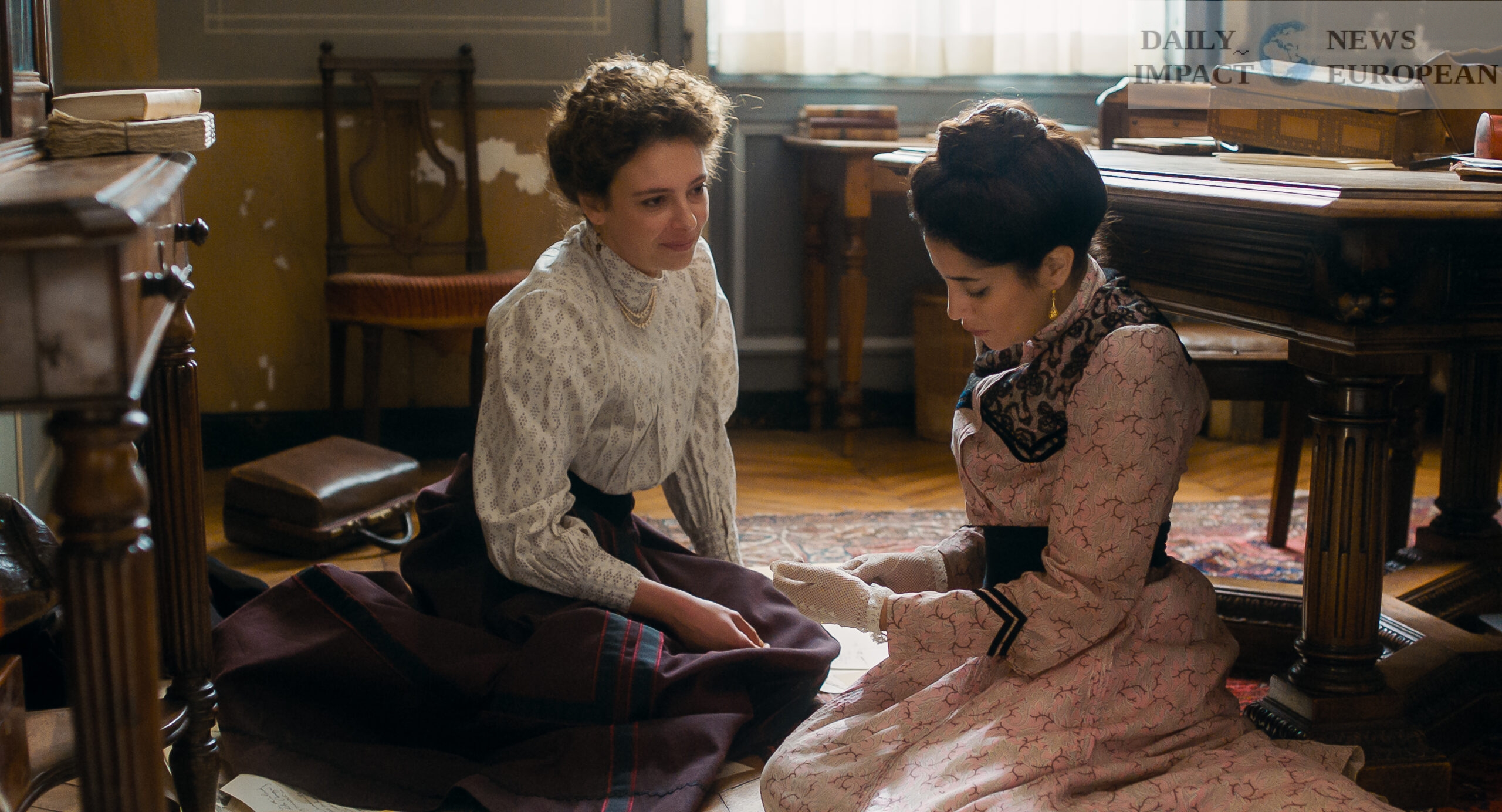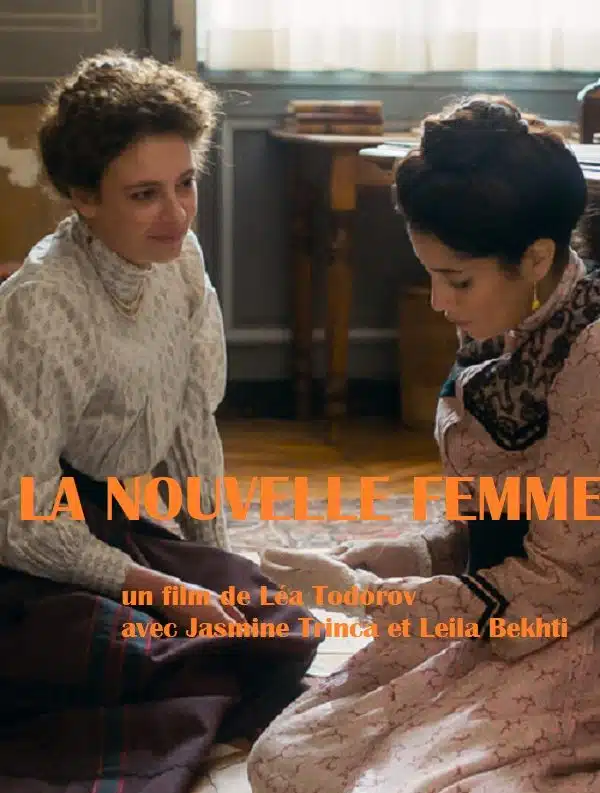As part of its 46th edition, the Villerupt Italian Film Festival is honoring Italian actress and director Jasmine Trinca who will be present on Friday November 10 and Saturday November 11 to accompany the film The New Woman. She plays the doctor and scientist Maria Montessori, alongside Leïla Bekhti. The film’s director Léa Todorov will also be present during the two exceptional previews that the festival has programmed, one of which will follow the Amilcar awards and prize-winning ceremony scheduled for Friday November 10 from 8 p.m. This ceremony will also be an opportunity for the City of Villerupt to present Jasmine Trinca with the Amilcar de la Ville, a trophy distinguishing a personality of Italian cinema with a remarkable career.
Jasmine Trinca (Rome, 1981) grew up in the Trastevere district and assiduously frequented the Nuovo Sacher cinema of Nanni Moretti, director with whom she began her acting career in 2001 in La Stanza del Figlio (The Son’s Room), Palme d’ Gold in Cannes. For this film, she was awarded the Silver Ribbon for Newcomer Actress (“Nastri d’argento” are awarded by the Italian Union of Cinema Journalists). In 2003 she played Giorgia, one of the protagonists of La Meglio Gioventù (Our Best Years) by Marco Tullio Giordana. Then followed nearly thirty films which earned him numerous awards: Chopard Trophy for female revelation at Cannes in 2006 for Il Caimano (The Caiman) by Nanni Moretti, Marcello-Mastroianni Prize for best new arrival at Venice in 2009 for Il Grande Sogno (The Italian Dream) by Michele Placido, Silver Ribbon for best actress in 2013 for Miele by Valeria Golino and Un Giorno Devi Andare by Giorgio Diritti, Golden Globe for best actress for Miele (Les « Globi d’oro” are awarded by the foreign press). Un Certain Regard Prize for best actress at Cannes in 2017 and David di Donatello (equivalent to our Césars) for best actress in 2018 for Fortunata by Sergio Castellitto,
Golden Globe for best actress in 2019 for Croce e Delizia by Simone Godano, David di Donatello for best actress in 2020 for La Dea Fortuna (Forever) by Ferzan Ozpetek.
She made her directorial debut in 2020 with the short film Being My Mom. Her first feature film, Marcel!, is presented out of competition at Cannes in 2022, where she is a member of the Jury. In 2023 she plays Ida, the main character of La Storia, a TV series directed by Francesca Archibugi, based on the novel by Elsa Morante, and Maria Montessori in La Nouvelle femme by Léa Todorov.
La Nouvelle femme (AdVitam Distribution) Official selection of the 2023 Villerupt Festival, presented in competition for the Amilcar de la Critique and the Amilcar des Exploitants 1900.
SYNOPSIS
Lili d’Alengy (Leila Bekhti), famous Parisian courtesan, has a shameful secret – her daughter Tina (Rafaelle Sonne ville-Caby) was born with a handicap, she is “idiot”. Unwilling to take care of a child who threatens her career, she decides to leave Paris for Rome. There she meets Maria Montessori (Jasmine Trinca), a doctor who is developing a revolutionary learning method for children who are then called “deficient”. Maria believes that her method, inspired by the latest scientific research, could be useful to all children. She plans to revolutionize the school. Like Lili, Maria also has a secret: a son, Mario, born out of wedlock and unrecognized. The father is his colleague, Doctor Giuseppe Montesano (Raffaelle Esposito). He would like to marry her, but Maria refuses the status of a married woman, and the child is in foster care in the countryside. Together, the two women will help each other to gain their place in this man’s world and write history, but Maria, the modern woman, will have to choose: her child or her project.
- “Years ago, I worked on a documentary on alternative pedagogies between the wars. I therefore documented myself on Maria Montessori, who was the star – and the diva – of new education at that time. She had experimented with a method in 1907 in a working-class district of Rome. Obtaining astonishing results with atypical children, she quickly imagined that applied to “normal” children, the results would be extraordinary. She had a real doctor’s point of view on education […].
Her life is complicated and fascinating, and I was careful, throughout the writing, to be as accurate as possible about what I would say about her,” Léa Todorov.
Léa Todorov (Paris, 1982) is an author, director and producer. After studying political science, she wrote and directed documentaries, Saving Humanity during Office Hours (2012) then Russian Utopia (2014) with Joanna Dunis.
In 2015 she participated in the creation of the production company Elinka Films. In 2016, she wrote the documentary School Revolution: New Education Between the Two Wars, directed by Joanna Grudzinska. The film participates in the Geneva International Historical Film Festival and the La Rochelle Film Festival. This project on alternative pedagogies will be the origin of his first feature-length fiction film. The New Woman about one of these teachers, the famous Maria Mon.
THE NEW WOMAN
France, Italy – 2023 1h39 | VOSTF
Director: Léa Todorov,
Screenplay: Léa Todorov, with the collaboration of Catherine Paillet,
Performers: Jasmine Trinca, Leila Bekhti, Rafaelle Sonneville-Caby, Raffaele Esposito, Laura Borelli, Nancy Huston, Agathe Bonitzer, Sébastien Pouderoux, Pietro Ragusa, Raffaella Ducrey Giordano, Georgia Ives, Stefano Abbati – PREVIEW – (released March 13, 2024 ).
To know more:
https://www.advitamdistribution.com/films/la-nouvelle-femme

The film will be broadcast on Friday November 10 at 8:30 p.m. at L’Arche, 1 esplanade Nino Rota in Villerupt (after the closing ceremony, in the presence of Jasmine Trinca) and Saturday November 11 at 6:15 p.m. at Villerupt Town Hall, followed by a meeting with Léa Todorov and Jasmine Trinca.
Copyright©2023 IMPACT EUROPEAN. All rights reserved.

More Stories
Meeting between French and Israeli counterparts Emmanuel Macron and Isaac Herzog at the Élysée
“Dansong” at the Avignon Off Festival 2024
Olympic Flame at the Jardin du Musée Mac Val